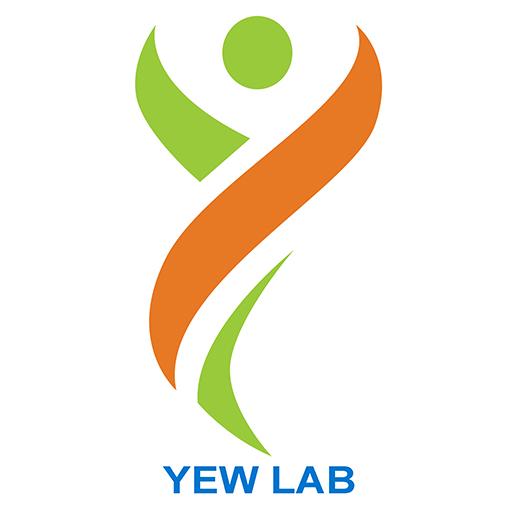News
News
Latest News

Apr 11, 2022 / mp.weixin.qq.com
According to the World Population Prospects: 2019 Revision, by 2050, one in six people in the world will be over the age of 65 (16%). With the aging of the population structure, some age-related diseases have also entered a period of high incidence. Among them, diseases such as Alzheimer’s disease and Parkinson’s disease are particularly cruel to patients. Although they will not directly cause death, people cannot age with dignity. More and more attention is paid to the development of related drugs.
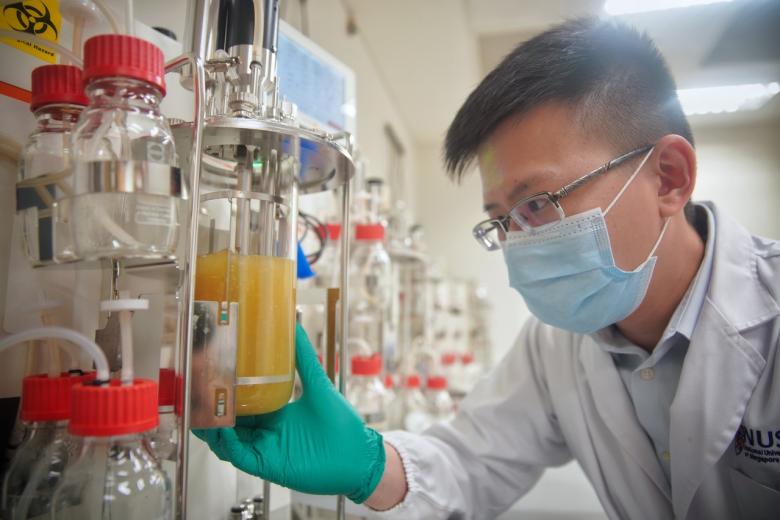
Yeast may soon be key to making drugs for dementia and Parkinson’s disease
Mar 22, 2022 / straitstimes.com/singapore/health/
SINGAPORE – The yeast commonly used in baking and beer brewing may soon be a key to sustainably produce medication for dementia and Parkinson’s disease.
Researchers from Singapore and Britain have found a way to modify the microscopic fungus and extract a key ingredient for such drugs.
The key ingredient is D-lysergic acid (DLA). It has a core structure similar to many neurotransmitters in the body, and therefore is used in drugs for treating dementia, Parkinson’s disease, migraines and other neurological illnesses.
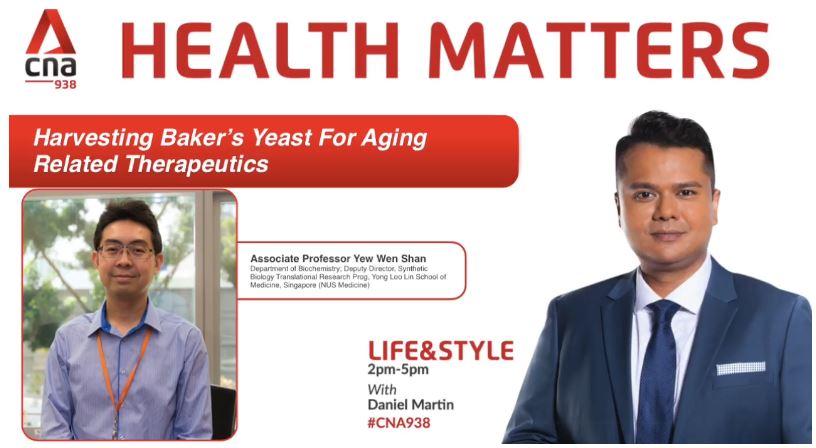
Health Matters – Could Yeast Be The Answer To Dementia?
Feb 26, 2022 / fb.watch/buuIKUk_eC/
What if common baker’s yeast could be the answer to age-related diseases like dementia and Parkinson’s Disease?
Health Matters finds out more.
LISTEN: Associate Professor Yew Wen Shan, Department of Biochemistry; Deputy Director, Synthetic Biology Translational Research Prog, Yong Loo Lin School of Medicine, Singapore (NUS Medicine)
Health Matters with Daniel Martin
Weekdays 4pm & 10pm
Weekends 3pm & 8pm
on #CNA938

Feb 8, 2022 / doi.org/10.1038/s41467-022-28386-6
A class of medicine used in the treatment of neuro-cognitive diseases and other neurological ailments (migraines, headaches, etc) are currently obtained from extracts of the ergot fungus. However, continued cultivation of the ergot fungus for medicine is not sustainable as industrial agriculture is one of the largest contributors to carbon emissions worldwide.
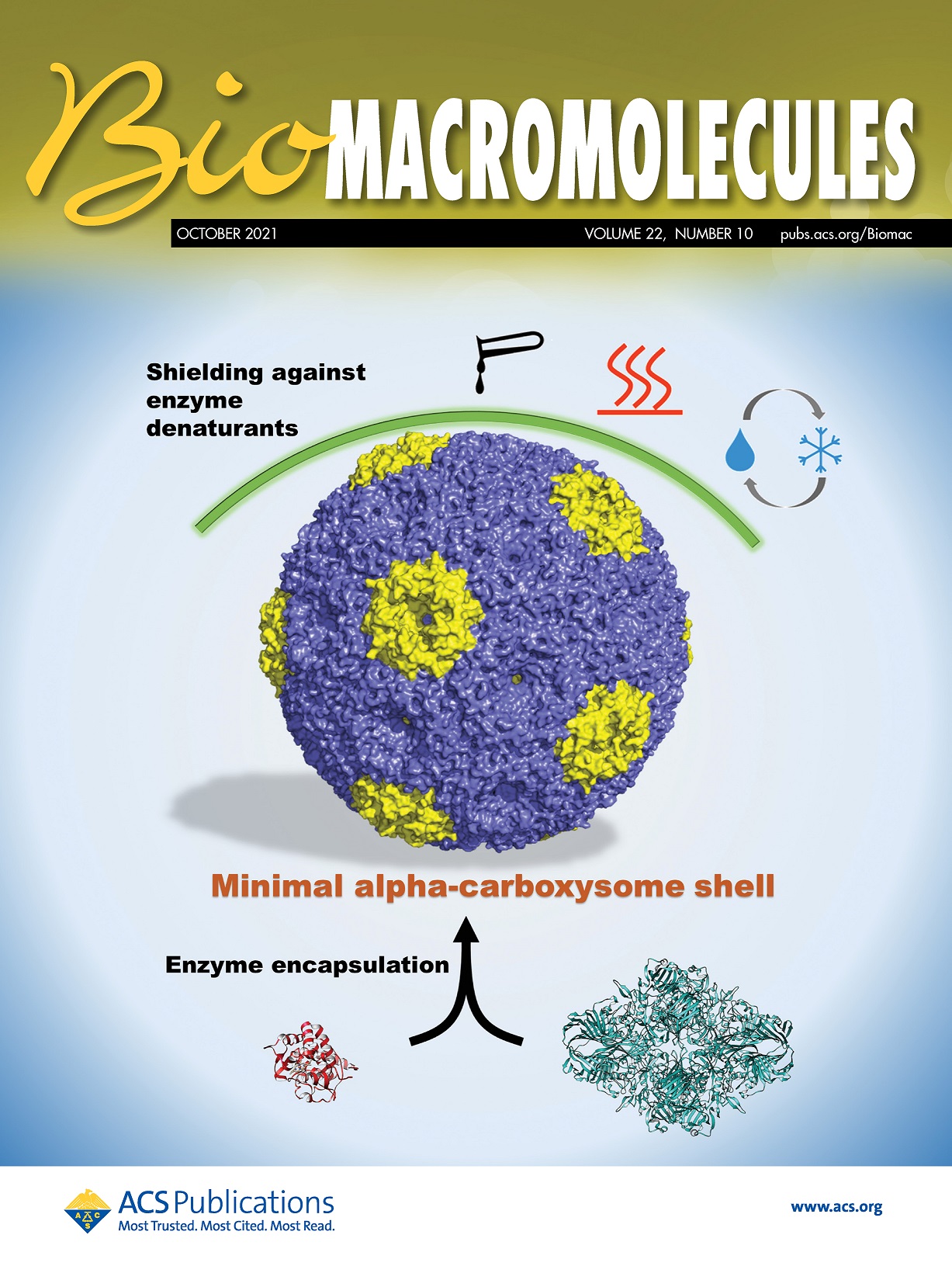
Structure of a Minimal α-Carboxysome-Derived Shell and Its Utility in Enzyme Stabilization
Oct 11, 2021 / pubs.acs.org/toc/bomaf6/22/10
Compared with chemical catalysts, enzymes as biocatalysts are in general much less stable, which limits their utilization under harsh conditions. Protein shells found in many bacteria, named bacterial microcompartments, can be used to encase and stabilize enzymes. Recent advances in making simplified versions of bacterial microcompartments have encouraged bioengineering efforts. Here, we construct minimal shells derived from the Halothiobacillus neapolitanus α-carboxysome, and elucidate their atomic structures using cryoEM. We identify encapsulation peptides that facilitate loading of heterologous protein cargo within the shells, and provide a first demonstration in utilizing these shells for hosting heterologous enzymes. Our shells can stabilize enzymatic activities against heat shock, presence of methanol co-solvent, consecutive freeze-thawing, and alkaline environments. This study gives new insights into shell assembly and advances the utility of synthetic bacterial microcompartments as nanoreactors capable of stabilizing enzymes with varied properties and reaction chemistries.
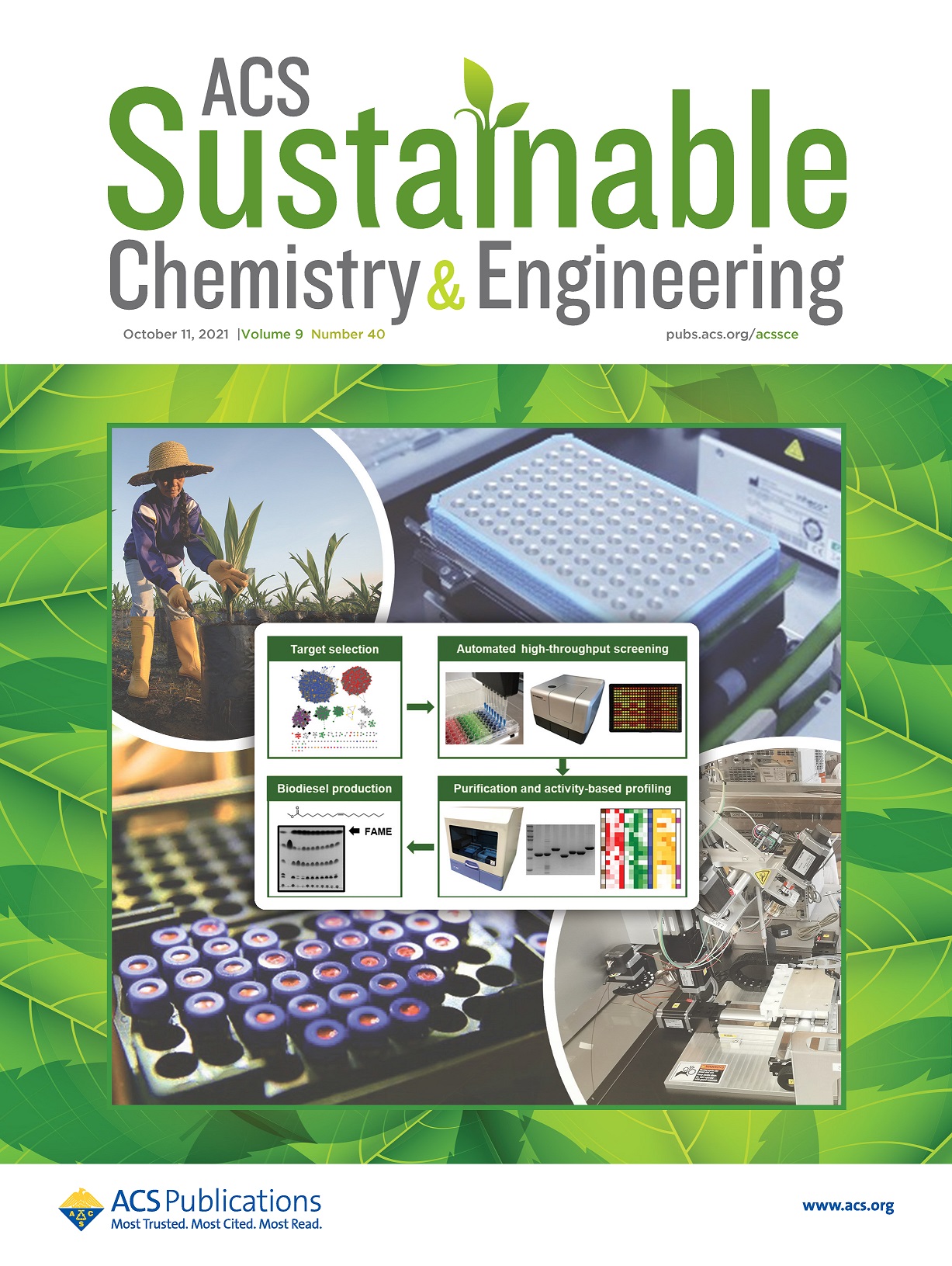
Scalable workflow for green manufacturing: discovery of bacterial lipases for biodiesel production
Oct 11, 2021 / pubs.acs.org/toc/ascecg/9/40
Biodiesel has recently gained traction to be a green alternative to fossil fuel. However, its environmental friendliness is impaired by its own production through traditional chemical processes that utilize harsh chemicals as catalysts and consume a lot of energy. Such counterproductivity can be effectively addressed by using enzymes as biocatalysts to transform plant oils into biodiesel under mild conditions. Efficient bioproduction of biodiesel at an industrial scale is currently limited by the reusability of the enzyme and its tolerance toward high concentrations of organic solvents. It is therefore critical to develop effective methods to screen a large number of enzymes and identify those with industrially desirable properties.
Here we describe a scalable workflow that integrates web-based tools and automation to identify a group of 114 bacterial lipases for expression, purification, and characterization using a high-throughput platform at our biofoundry. The activity profile of these lipases reveals a broad range of substrate specificities and optimal pH. Most of these enzymes are thermostable and can tolerate up to 40% methanol (v/v). Among the 114 lipases tested, 22 are able to produce methyl oleate from triolein in the presence of methanol. Our study demonstrates the utility of the workflow to identify lipase candidates for the industrial production of biodiesel.
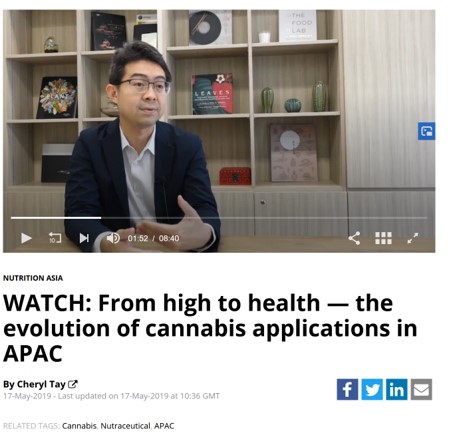
From high to health — the evolution of cannabis applications in APAC
May 17, 2019 / nutraingredients-asia.com
Despite a growing number of youth who feel cannabis is not harmful or addictive, authorities in Singapore say the blanket ban is here to stay. Ariel Lim takes a closer look at why the younger generation is more open to cannabis and if there is any truth in its medical properties.
Time: 1:50min – 5:09min

More youths feel cannabis not harmful or addictive, say authorities (Video)
May 26, 2019 / Channel News Asia
Despite a growing number of youth who feel cannabis is not harmful or addictive, authorities in Singapore say the blanket ban is here to stay. Ariel Lim takes a closer look at why the younger generation is more open to cannabis and if there is any truth in its medical properties.
Time: 4:35min – 6:33min
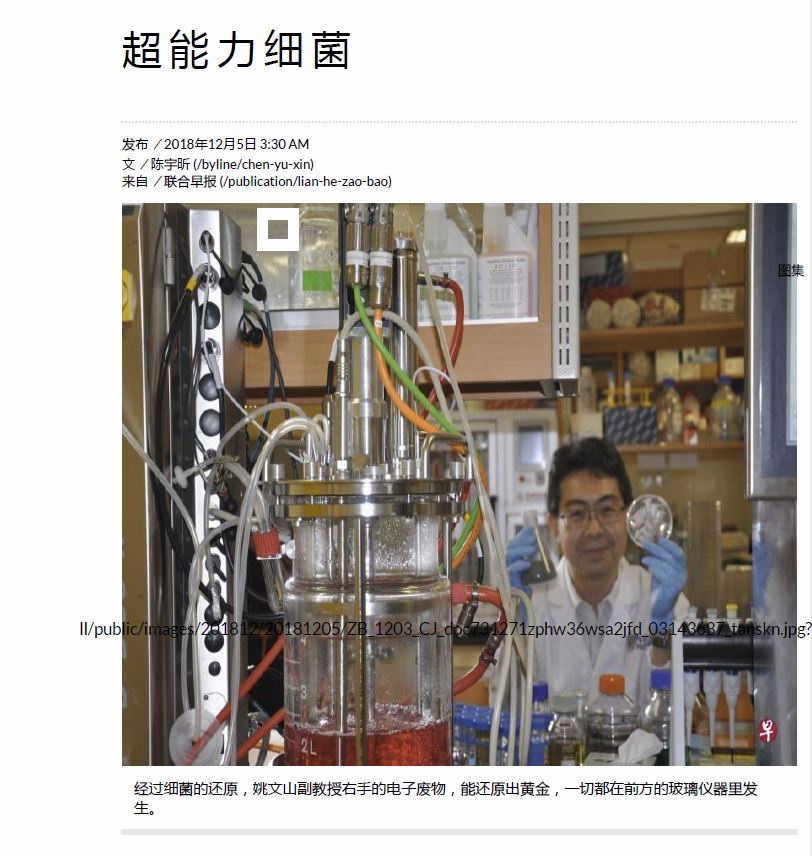
超能力细菌 (Website)
December 5, 2018 / Lian-he-zao-bao
提到细菌,人们马上联想到它对身体有害,其实不同的细菌,经过改 良,或许有潜藏的“超能力”,有待科研人员去发掘。国大科研人员与联合早 报记者分享大学目前最新的科研成果

超能力细菌 (Print)
December 5, 2018 / Lian-he-zao-bao
提到细菌,人们马上联想到它对身体有害,其实不同的细菌,经过改 良,或许有潜藏的“超能力”,有待科研人员去发掘。国大科研人员与联合早 报记者分享大学目前最新的科研成果
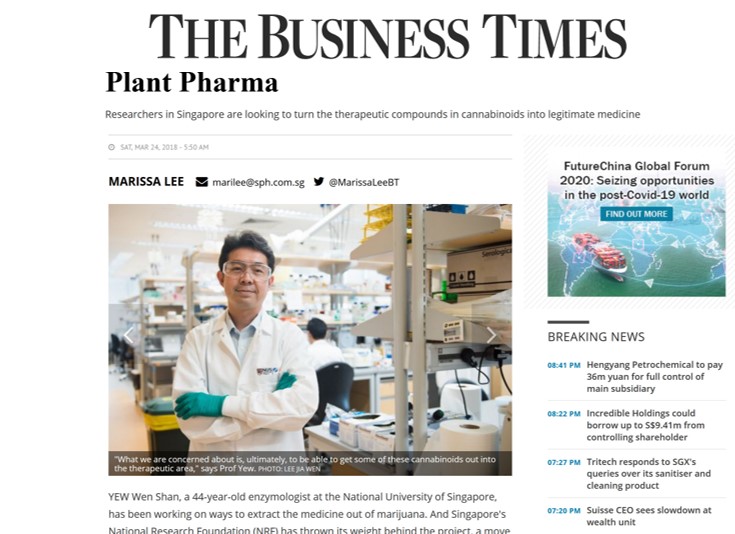
Plant Pharma
March 24, 2018 / The Business Times
YEW Wen Shan, a 44-year-old enzymologist at the National University of Singapore, has been working on ways to extract the medicine out of marijuana. And Singapore’s National Research Foundation (NRF) has thrown its weight behind the project, a move that at first glance might seem startling – given the country’s zero-tolerance drug laws – but is in fact quite astute. Associate Professor Yew’s research in the field will seed the ground for synthetic drugs that offer the therapeutic effects of cannabis, without their mind-altering impact and minus the illegalities. He and his team of scientists here are looking for novel ways to biosynthesise cannabinoids – the chemical compounds found in the cannabis plant – without the need to grow the cannabis plant.
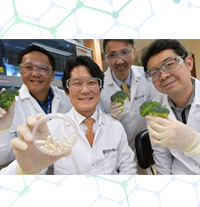
Cocktail of bacteria and broccoli may keep cancer at bay
February 15, 2018 / The Straits Times
A day when taking a probiotic drink and eating vegetables could stave off colon cancer may just be closer. Scientists in Singapore claim to have found a way to turn a harmless cocktail of the common gut bacteria E. coli Nissle and broccoli into a potent anti-cancer mix. The concoction has been proven in the laboratory to kill off 95 per cent of lab-cultured colon cancer cells. Now, trials on actual colon cancer cells from patients in Singapore are on the cards….
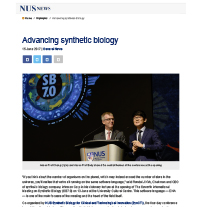
Advancing synthetic biology
June 15, 2017 / NUS News
SB7.0 will provide a unique platform for a global community of synthetic biologists to gather and plan together for collective growth of our science, its beneficial applications, and responsible practices. — Assoc Prof Matthew Chang. This edition of the conference series was focused on three themes — “Revolution 2”, “All People and the Planet”, and “Diversity with Harmony”, which aimed to get participants to discuss the next technical and scientific step in the field and address possible implications on the planet in an inclusive environment of openness and sharing.
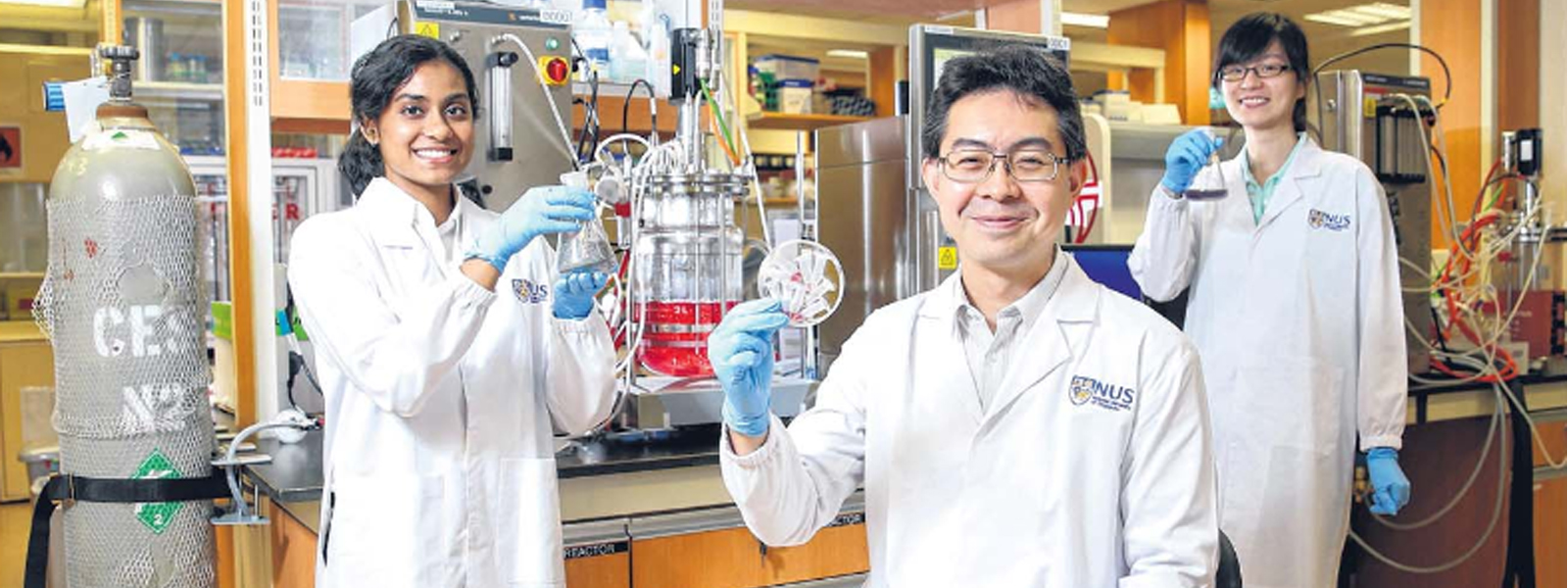
Bacteria Used to Extract Precious Metals from E-Waste in NUS Study
April 8, 2016 / The Straits Time
A single-celled organism could end the use of harmful chemicals to extract precious metals from electronic waste (e-waste). Scientists from the National Universityof Singapore (NUS) have re-engineered the Chromobacterium violaceum bacterium to give it the ability to create enzymes that can recycle metals such as gold, platinum and palladium from e-waste.
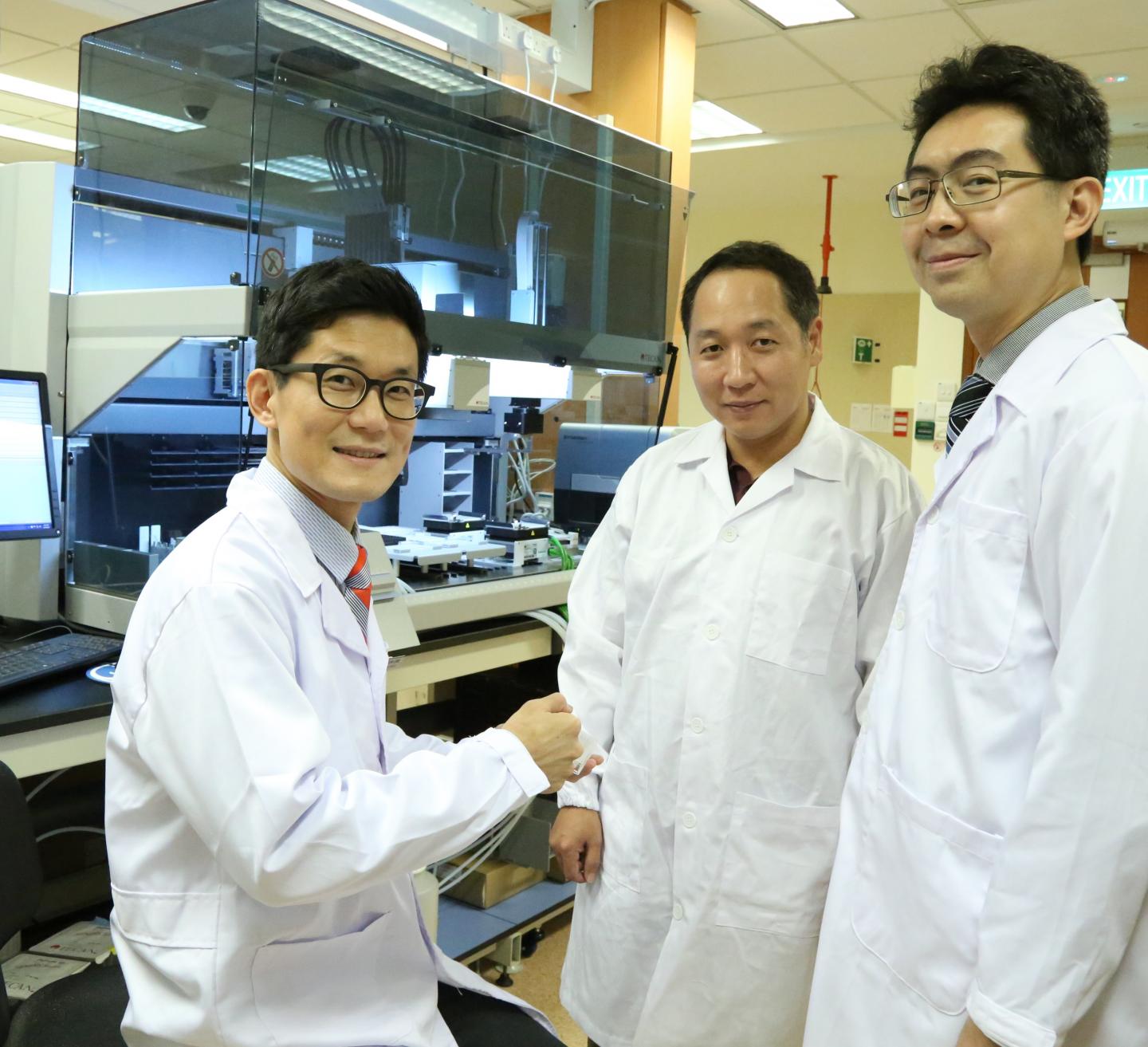
NUS Making Waves in The Brave New World of Synthetic Biology
October 2, 2015 / The Straits Time
The National University of Singapore (NUS) launched a new research initiative called the NUS Synthetic Biology for Clinical and Technological Innovation (SynCTI) to further develop research capacity and capabilities in the emerging and fastgrowing field, which has the potential to be the next engine for economic growth for technologically advanced countries, including Singapore.
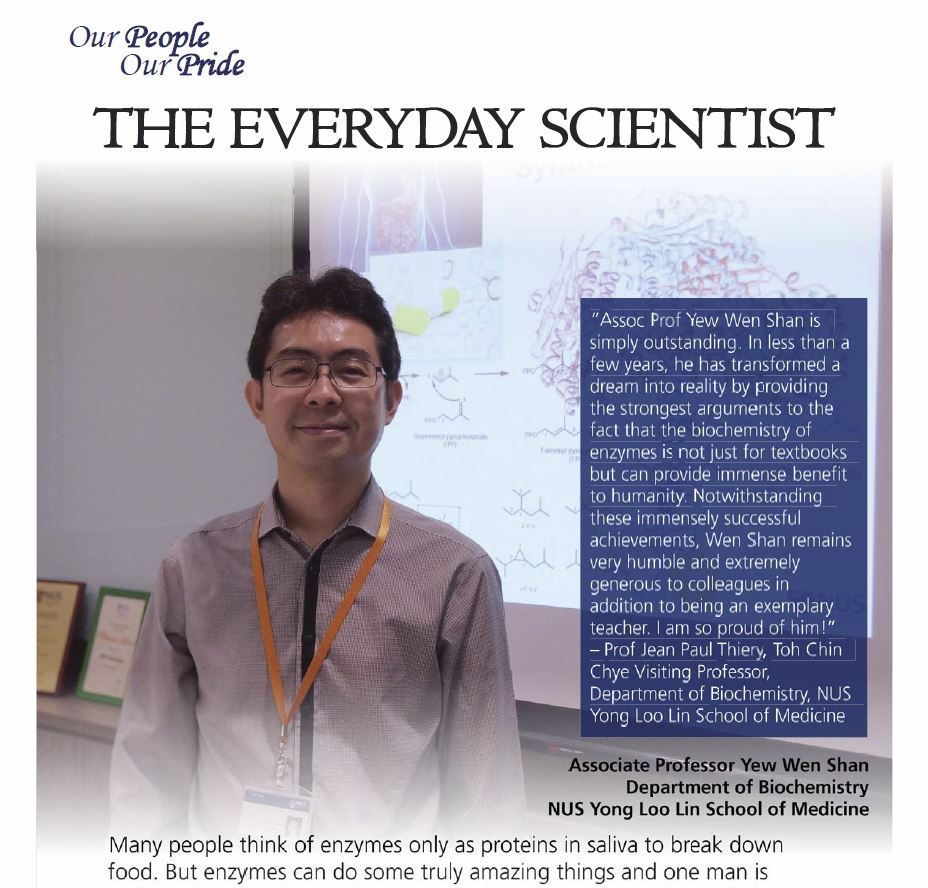
The Everyday Scientist
August 21, 2015 / NUHS
Many people think of enzymes only as proteins in saliva to break down food. But enzymes can do some truly amazing things and one man is reviving the old science of enzymology by combining it with synthetic biology.
In doing so, Assoc Prof Yew Wen Shan shows that enzymes have wide ranging,everyday relevance: from anti-virulence drugs to treat infectious diseases, to novel drugs to address aging issues. It can also replace chemicals to recycle metals in an organic, safe and environmentally sustainable process.
